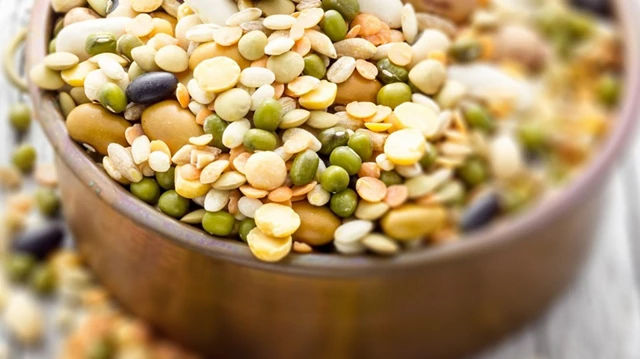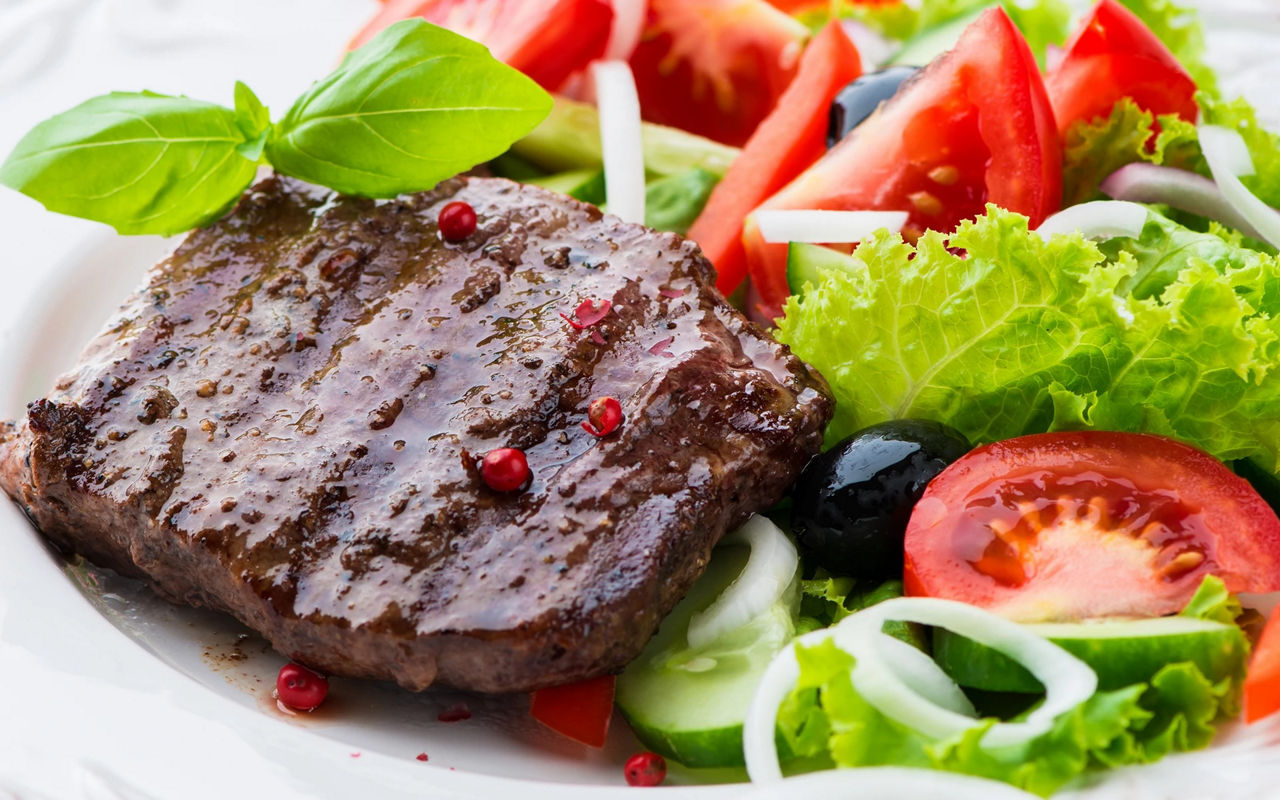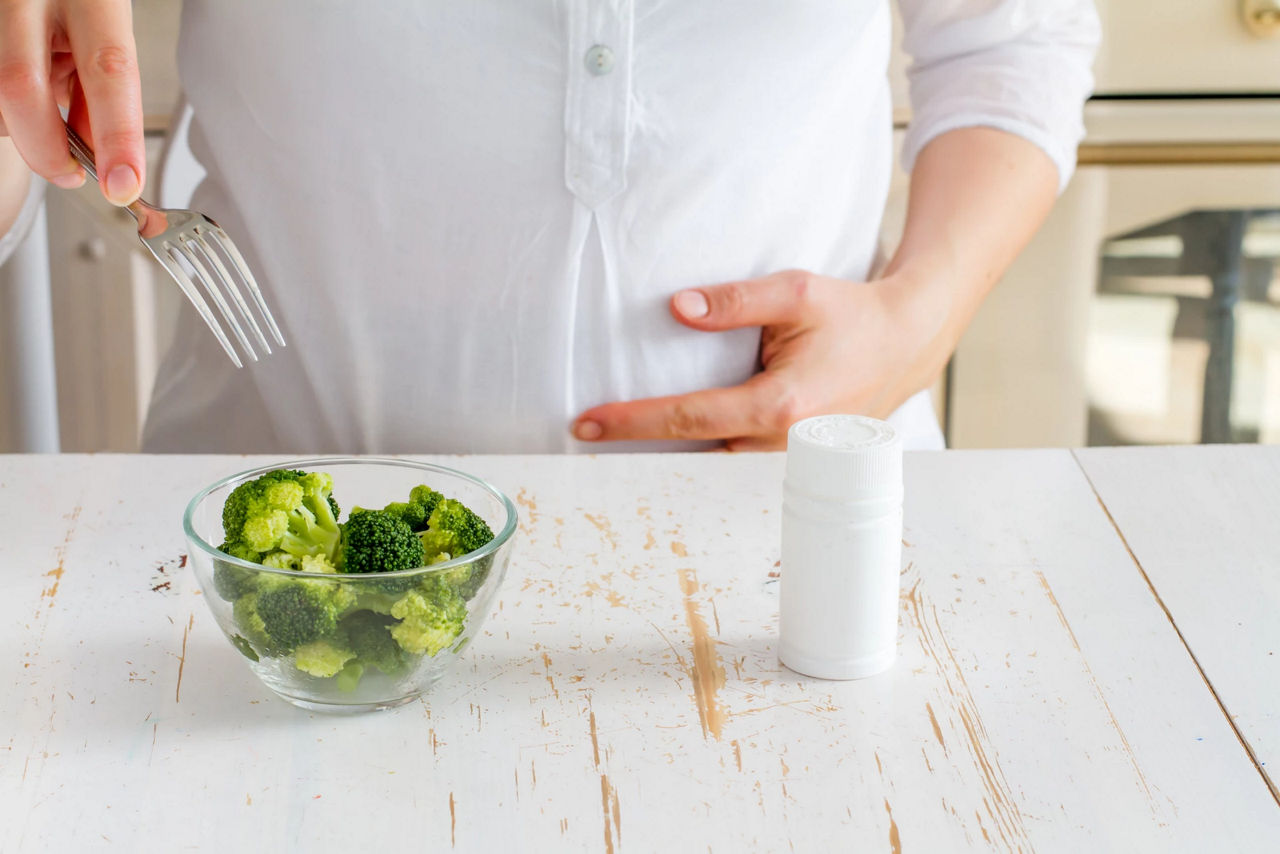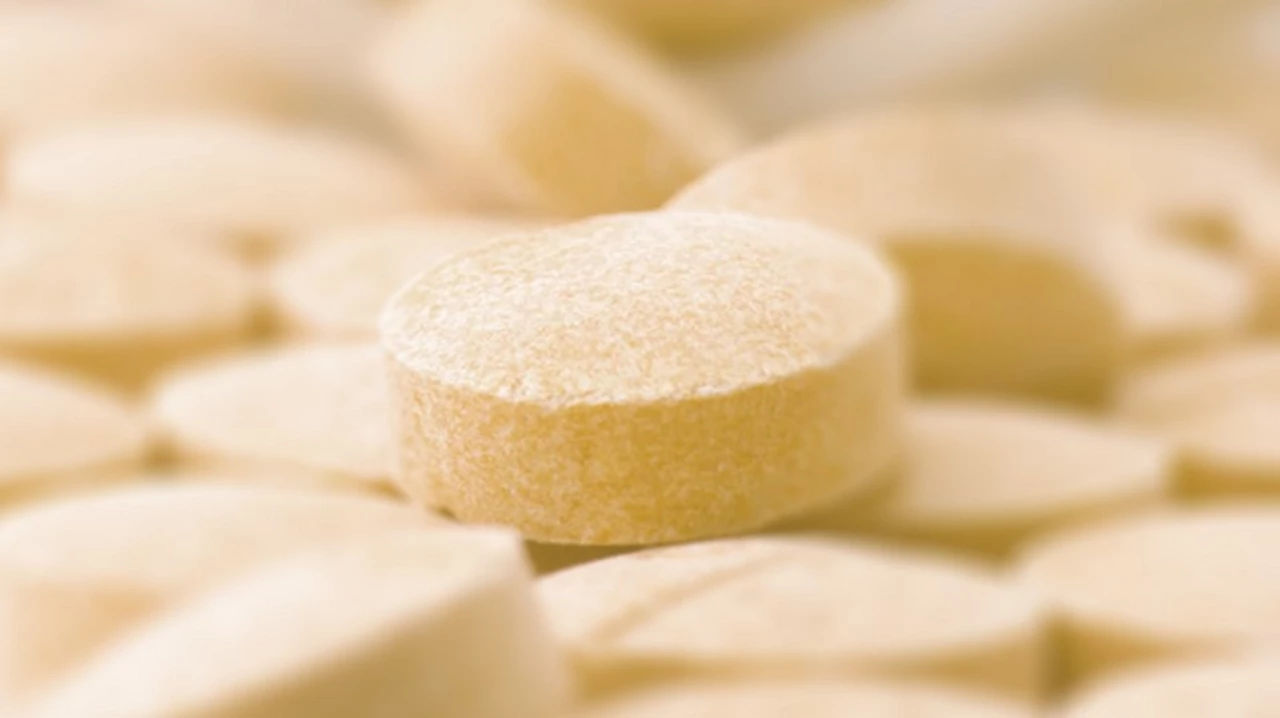Low iron in pregnancy
Iron is a key nutrient during pregnancy, and an important part of a balanced diet. It supports your baby’s developing brain and helps to maintain a healthy supply of oxygen in your blood1,2. It also helps support the development of your baby’s immune system and helps to maintain your own health and wellbeing too. With so many roles to play for both you and your baby, your body uses more iron during pregnancy than usual.
Learn more about the importance of iron during your pregnancy, how much iron you need when you’re pregnant, and which foods can help to boost your intake.

Why is iron so important during pregnancy?
Iron has essential roles to play in your baby’s development and your own health. Not only does it support your baby’s rapidly developing brain, as well as their growing muscles1, it’s also needed to make haemoglobin, the protein in red blood cells that carries oxygen around your body and to your baby2.
Keeping your iron levels topped up can also prevent iron deficiency anaemia. It’s a condition in which your blood doesn’t contain enough red blood cells, which can leave you feeling tired, breathless and even affect your immune system.
The recommended daily intake for every woman, whether pregnant or not, is 14.8mg each day.
During pregnancy, your body uses more iron than usual. This is partly due to your increased blood supply, with more iron required to create and maintain a greater volume of blood cells.
Your baby’s demand for iron also rises as they grow. Added to this, your baby’s body starts accumulating iron stores in the third trimester of pregnancy, ready to support them during their first 6 months of life.
Surprisingly though, as long as you had good iron levels before conceiving, your recommended intake remains the same as if you weren’t pregnant. This is because without the loss of blood through monthly periods, you retain more of your body’s iron stores.
Your body also becomes more efficient at absorbing iron as pregnancy progresses – one of the amazing ways your body naturally adapts to the ever-changing demands of growing a new person1.

What if I don’t get enough iron?
Mild iron deficiency can leave you feeling tired, lacking in energy and leave you looking pale and washed out.
A more severe case of iron deficiency can lead to iron deficiency anaemia, a condition where the blood doesn’t contain enough red blood cells for your body’s needs. This can cause symptoms including heart palpitations, brittle nails, thinning hair and mouth ulcers. Your immune system can also be affected, leaving you more vulnerable to infection and illness3.
Maintaining healthy iron levels during pregnancy on the other hand means you’re less likely to become anaemic4, in turn lowering the possible risks of premature birth, a low birth weight5 and low iron levels in your baby6.
Your midwife will check your iron levels regularly throughout your pregnancy. If your levels run low, they may suggest taking an iron supplement, and if you do develop anaemia, they will help you manage the condition to keep you and your baby healthy. It’s best not to take a supplement unless advised to do so by a healthcare professional.
Iron is available in a wide variety of foods and comes in two different forms.
Haem iron comes from animal-based sources, such as red meat. This type of iron is easily absorbed by your body. In fact, you absorb up to 30% of the haem iron that you consume.
The best sources include:
- Meat, including beef, lamb and pork.
- Poultry, Including chicken, turkey and duck.
- Fish, including tuna, mackerel and sardines (no more than two portions per week).
- Eggs (only eat eggs which carry the red lion mark while you’re pregnant).
Non-haem iron comes from plant-based sources, like pulses and dark leafy vegetables, which are important part of a nutritious, well-balanced diet. While non-haem iron is harder for your body to absorb, vitamin C7 helps your body absorb more of it. So when eating iron-rich plant-based food, up your intake by having a glass of orange juice or a piece of citrus fruit with it or for dessert.
- Pulses, such as lentils and chickpeas.
- Nuts, such as pistachios, almonds and cashews.
- Wholegrains such as wholemeal bread and iron-fortified breakfast cereals.
- Dark, leafy vegetables, like spinach, kale and broccoli.
- Dried fruit, like apricots, prunes and raisins.
Interestingly, the cookware you use may also affect the iron content of your food. Some research suggests that using cast iron pots and pans can help to increase your iron intake1.
Be aware that the tannins in tea and coffee can reduce the absorption of iron. So if you enjoy a hot drink after a meal, try choosing a pregnancy-safe fruit tea instead8.
Try to include a variety of iron-rich foods as part of your healthy, balanced pregnancy diet to ensure you’re getting an adequate intake.
Iron for vegans and vegetarians
If you follow a vegan, plant-based or vegetarian diet, do include a wide variety of iron-rich foods and where possible combine them with foods which are rich in vitamin C to ensure you get the maximum intake of iron from your diet.
You also need to take care that you’re getting enough vitamin B12, protein, calcium, and omega-3 fatty acids in your diet. Vegans especially are likely to need to take a B12 supplement in order to get an adequate amount – ask your midwife for advice.
related articles
Read next

Need some help?
You can get quick answers to common questions in our FAQs.
Alternatively, if you need help with general pregnancy or baby advice, or maybe on using or ordering our products - our expert team are always on hand to talk about feeding your baby.
- British Nutrition Foundation. Nutrition and development, short and long-term consequences for health. London: Wiley Blackwell, 2013. (1a:155; 1b: 61; 1c:322; 1d:322)
- NHS UK. Iron [Online]. 2017. Available at: www.nhs.uk/Conditions/vitamins-minerals/Pages/Iron.aspx [Accessed March 2020]
- NHS UK. Iron deficiency anaemia – complications [Online]. 2018. Available at: www.nhs.uk/Conditions/Anaemia-iron-deficiency-/Pages/Complications.aspx [Accessed March 2020]
- Pena-Rosas JP, Viteri FE. Effects and safety of preventive oral iron or iron+ folic acid supplementation for women during pregnancy (Review). Cochrane Database Syst Rev 4, 2009:CD004736.
- Alwan NA et al. Dietary iron intake during early pregnancy and birth outcomes in a cohort of British women. Hum Reprod 2011;26(4):911-919.
- Kilbride J et al. Anaemia during pregnancy as a risk factor for iron-deficiency anaemia in infancy: a case-control study in Jordan. Int J Epidemiol 1999;28(3):461-468.
- Cook JD, Monsen ER. Vitamin C, the common cold, and iron absorption. Am J Clin Nutr 1977;30(2):235-241.
- Hurrell RF et al. Inhibition of non-haem iron absorption in man by polyphenolic-containing beverages. Br J Nutr 1999;81(04):289-295.
Last reviewed: 28th July 2020
Reviewed by Nutricia’s Medical and Scientific Affairs Team



